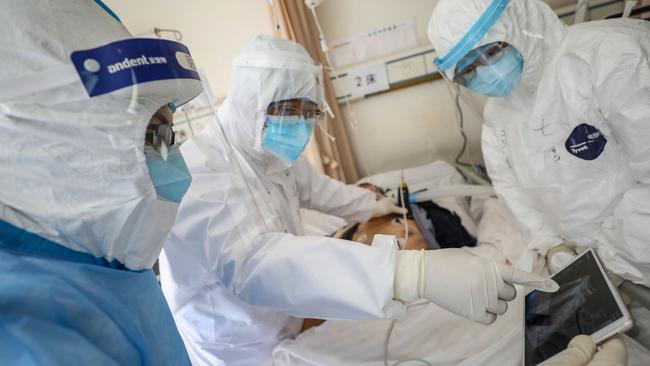As many as 60pc of coronavirus infections ‘may be being missed’
Less than half of all coronavirus cases are likely being detected, according to a scientific paper.

Fewer than half of all coronavirus cases are likely being detected, according to a scientific paper which predicts many of those infected will not be diagnosed.
The paper from the Centre for Communicable Disease Dynamics at Harvard T.H. Chan School of Public Health in Boston says as many of 60 per cent of COVID-19 cases around the world are likely going undetected, even in countries such as Australia that have advanced surveillance techniques. “Recent work indicates variation among countries in detection capacity,” the paper says.
“We found that the ability to detect imported cases among high surveillance countries is 40 per cent, among intermediate surveillance countries it is 37 per cent, and among low surveillance countries it is 11 per cent.
“Undetected cases are likely in countries around the world, with greater risk in countries of low detection capacity and high connectivity to the epicentre of the outbreak.”
The Australian government has emphasised the success of containment of the virus in this country to an initial 15 cases, with 14 of those being people who had been in Wuhan. The remaining one case was a close contact of a traveller from Wuhan.
The government says travel restrictions are necessary to contain the spread of the virus, but Australian citizens are still free to travel from China. While travellers are being screened if they are sick or have a fever, surveillance methods at airports are notoriously unreliable.
With the coronavirus sometimes causing very mild symptoms similar to a cold, it remains possible that the virus might have spread more widely in Australia than authorities are aware.
Some scientists have used the case numbers of the virus in international travellers to estimate the size of the outbreak in Wuhan. But the Harvard Chan paper questions whether such estimates are accurate. “If the true number of cases in travellers is higher than previously thought, this implies more cases in Wuhan and a larger denominator, resulting in reduced estimates of severity compared to estimates assuming perfect detection in travellers,” the paper says.
“Future studies should account for our evolving understanding of detection capacity when estimating case numbers and severity in source population on the basis of traveller case numbers.”
The paper said it was possible that the virus could have spread to other countries prior to the lockdown of Wuhan.
“The scenario where the virus has been imported from Wuhan and remained undetected in various worldwide locations is a plausible one, at least until the city lockdown (on January 23), and one might speculate that detection capacity remained limited beyond this period as travellers infected elsewhere in China continued to leave China,” the paper says. “Based on our model, the risk of undetected circulation correlates both with air travel connectivity and to outbreak detection capacity, but could have happened in virtually any location worldwide, leading to the potential risk of self-sustained transmission, which may be an early stage of a global pandemic.”



